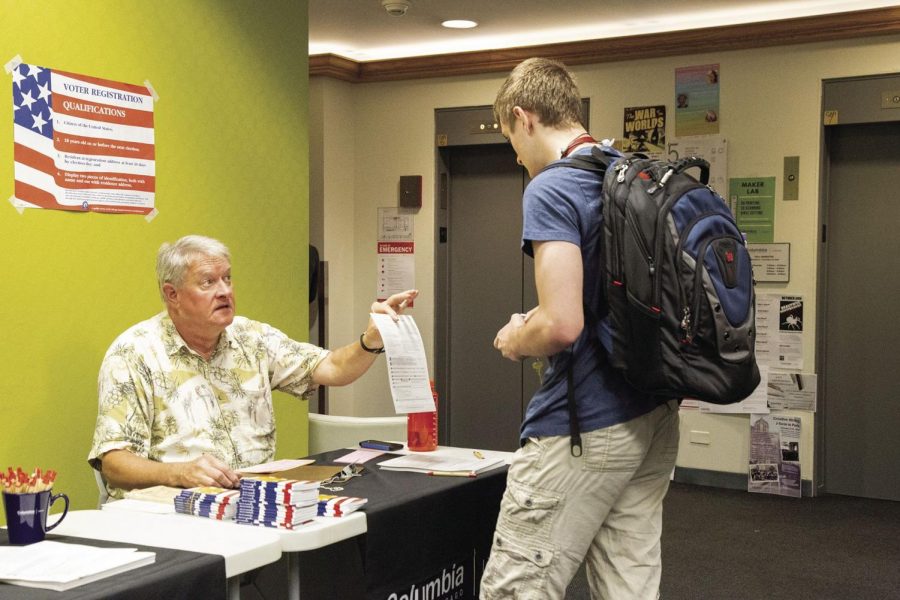Columbia celebrates democracy with voter registration day
October 2, 2018
The Library, in collaboration with the Office of the Registrar and College Assembly, hosted a voter registration drive on campus Sept. 25 in recognition of National Voter Registration Day.
The holiday is recognized every fourth Tuesday in September and is a celebration of U.S. democracy.
According to a 2017 Tufts University study, 48.3 percent of college students voted in the 2016 presidential election. This percentage is higher than the 45.1 percent reported in the 2012 election.
The study suggested students are motivated to vote or not vote based on what they learn in college from faculty or peers.
The Washington Post published an essay Sept. 24 by Michael Peshkin, an engineering professor at Northwestern University. In his essay, Peshkin states the most effective method to encourage college-age voting is person-to-person contact. He also says research shows that voting is a habit best acquired at a young age.
“My parents always instilled in me the need to vote. My parents [would say] you have a vote, you have a voice and you need to let it be known,” senior broadcast journalism major Kendall Hyde said.
When new students arrive on campus each year, connecting with them and talking about their voting choices is the most effective way of reaching new potential voters, professor Michael Peshkin said.
“During our student convocation with incoming freshmen for the Communication Department, we decided to try to get everybody registered to vote who wanted to be,” said Sharon Bloyd-Peshkin, associate professor in the Communication Department and Michael’s sister. “In other words, approach every single student, one on one and say, ‘Are you registered to vote?’ [And if not], ‘Would you like to register to vote?’”
The U.S. Elections Project estimates indicate that 58 percent of eligible voters voted in the 2016 election.
This number is on par with the percentages of the previous election in 2012.
“There is this myth out there that students aren’t civilly engaged. There is no evidence to support that. There is evidence that students vote at the same percentages as anybody else who just moved. [When] you dislocate people, they tend to drop off on voting,” Bloyd-Peshkin said.
Out of the 107 students that were expected at the event, 93 registered to vote.
It is important that students stay in the loop and ask questions when they come up, said Jazmin Bryant, cinema art and science major and president of the Student Government Association. If students don’t know how to register or are from out of state and would still like to vote, it is important that they ask questions, she said.
Peshkin’s essay asserts that it is important to register young out-of-state voters right away. If they chose to vote by mail, streamlining the process of voting by mail for students is the goal.
Envelopes with stamps are provided for students in case they do not have them.
“[Voting] is important because we are the ones who are going to make change,” Bryant said. There is a lot of power within voting, and the youth sometimes don’t realize the power that we hold.”








